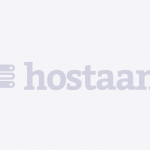Haltu is an agile software development house. Our team of digitalisation professionals will help with your software projects from the idea to launch. Bring your business to the web as well as on mobile together with Haltu.
We began building our infrastructure in 2010 from scratch. Back in the day, we were experimenting with different solutions. Then a year later we moved to a new bigger office and got some new neighbours. They knew UpCloud from Sigmatic and recommended them by saying “those guys are building something new.” At first, we were uncertain if it would work, but it certainly did, and here we are, eight years later.
Previous challenges
Before migrating to UpCloud, we were using ElasticHosts. To us at first glance, UpCloud looked like a local ElasticHosts with servers in Finland. We were looking for a virtual machine hosting solution that wasn’t simply a traditional VPS. As it turns out, UpCloud stood out as something more.
Our main requirement was to have a fully featured API to create and manage our machines. It was also important that the virtualization solution just felt right. At the time we were working with KVM and qemu which made the move quite straightforward. Since then we have been using UpCloud as our main cloud provider.
Hosting on UpCloud
We are building just about everything in-house while UpCloud provides the infrastructure.
We have two different models of how we set up our services. The first is a separate server for every customer, custom made by their request and needs. The second one is more interesting. We’ve built a mini version of AWS-style hosting where different customers share the same PostgreSQL, Elasticsearch clusters, RabbitMQ, and the likes. This approach helps us in minimizing the cost per customer for smaller services.
Much of the development is done using Python on Ubuntu cloud servers. Here’s a quick list of applications and services we are running on UpCloud:
- Containerisation; OpenShift, Docker
- Development and staging; GitLab, devpi
- Automation and monitoring; Salt Stack, Sentry
- Web servers and proxy; nginx, Apache, Squid
- Database, caching, and search tools; PostgreSQL, Redis, Elasticsearch
- Single Sign-on systems; SAML, Shibboleth
- Messaging broker; RabbitMQ
Then in addition to these, basically anything the customer project needs, we provide.
Improvements
When compared to other services we use now, UpCloud’s offering is simple and easy to understand. Cloud servers with a little bit of networking. Nothing overly fancy and that’s exactly what we want.
We grow by our customers by using either UpCloud or Amazon AWS for all of our new projects. Our Finnish customers naturally prefer UpCloud and it’s a big selling point having servers in Finland owned by a Finnish company. Many bigger international customers and projects are built on AWS leveraging the services they offer as much as possible.
Internally at Haltu, we are using a two-tier infrastructure. Our core services needed for company operations are separated from the production infrastructure that is used to provide services to our customers. UpCloud’s flexibility is well suited to facilitate this approach.
Future plans
We are in the process of taking advantage of multiple locations in Finland. This is a huge improvement for us and we are happy to see UpCloud offering a second data centre in Helsinki.
We would also like to see hosted services such as PostgreSQL as well as an even more flexible storage system for multi-use, live resizing, with unlimited capacity paid by usage. These would position UpCloud to compete even better against others in the industry.


